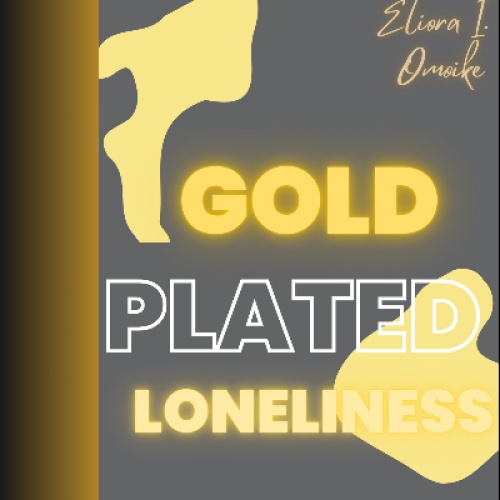Her parents were workaholics. Her mother, a fashion designer, was always caught up in the world of runway shows and social media, while her father, a tech businessman, focused on numbers and reports. They hardly had time for Mia; their lives were filled with meetings and deadlines. To them, success meant having money and power, not family dinners or bedtime stories.
At school, Mia wore her wealth like armor, attending a fancy private academy with other privileged kids. Yet even among her classmates, she felt very alone. While her classmates talked about weekend trips and expensive birthday parties, Mia found it hard to fit in. She often sat by herself at lunch, drawing in her notebook, her colorful pictures standing out against her lonely feelings.
One afternoon, she overheard a group of girls excitedly sharing their weekend plans. "My dad took me to that art exhibit!" one girl said, her eyes shining. "And my mom surprised me with a new handbag and the newest iPhone!" Their joy felt like a painful reminder of what Mia missed. She wished for simple moments with her family - fun outings filled with laughter - but those moments seemed far away.
That evening, as the sun set, Mia went to her room, feeling the weight of her loneliness. She opened her closet and took out a dusty box filled with memories - photos of her younger self with her parents. Back then, they shared happy times that felt real. Now, those memories felt like pieces of a dream that had faded away.
Feeling desperate, Mia took out her sketchbook and began to draw. She filled the pages with images of a happy family - one that laughed together, celebrated together, and enjoyed each moment. In her drawings, her parents smiled at her, their love clear and warm. But as beautiful as these pictures were, they were just dreams of what she wanted.
Days turned into weeks, and Mia's drawings became more detailed. She created scenes of joy and togetherness, but the emptiness inside her stayed. Each pencil stroke reminded her of her reality - a life spent chasing after love that never came.
One evening, after finishing a special drawing, she gathered her courage and called out to her parents. "Mom! Dad! Can you come here for a second?"
After a long wait and patience dropping, her mother appeared, looking at her phone. "What is it, Mia?" she asked, barely glancing up.
Mia held out her drawing, her heart racing. "I wanted to show you this."
Her mother quickly looked at it, a polite smile forming. "That's nice, honey. I'm really busy right now. Can we talk about it later?"
The words felt like a heavy blow. "Sure," Mom whispered, forcing a smile as she went back to her room. Alone, she buried her face in her pillows, tears flowing as her heart ached for a connection that felt forever out of reach.
As her sixteenth birthday approached, Mia felt a mix of hope and fear. Maybe this year would be different - maybe her parents would finally notice her. But when the day arrived, it turned into just another blur of expensive gifts and empty celebrations. They promised to celebrate, but it never happened. Instead, Mia found herself sitting on the floor of her room, surrounded by beautiful but hollow things.
That night, under the soft glow of her lamp, she opened her sketchbook again. Instead of happy family scenes, she drew a lonely girl surrounded by fancy walls, her heart heavy and her eyes sad. It was a picture of her reality - both beautiful and deeply sad.
In the stillness, Mia realized she wasn't just looking for attention; she wanted a real connection. The gold-plated loneliness had settled in, a weight that felt both familiar and suffocating.
As she closed her sketchbook, tears streamed down her face, and she whispered to the empty room, "I just want to be seen." But in the silence that followed, there was no answer, only the echo of her unfulfilled longing against the shiny walls of her lavish prison.
Then, a new thought sparked in her mind - what if she could use her art to connect with others? Inspired by her drawings of family, Mia decided to host a small art show, inviting her classmates and community to share their own stories through art. It felt scary, but for the first time, she saw a way to create something real.
As she worked hard to organize the event, Mia felt a flicker of hope. Maybe she could bring people together to share their feelings. On the day of the show, her heart raced as classmates filled the gallery. She watched them admire her work and start to share their own stories.
In those moments, amidst laughter and conversation, Mia realized that being open could help her connect with others. While she still had a long way to go with her parents, she found comfort in the friendships she was building.
Mia stood by her drawings, no longer a lonely girl in a gilded cage, but part of a colorful community woven together by shared experiences. For the first time in a long while, she felt seen - not just for her wealth, but for her heart.





